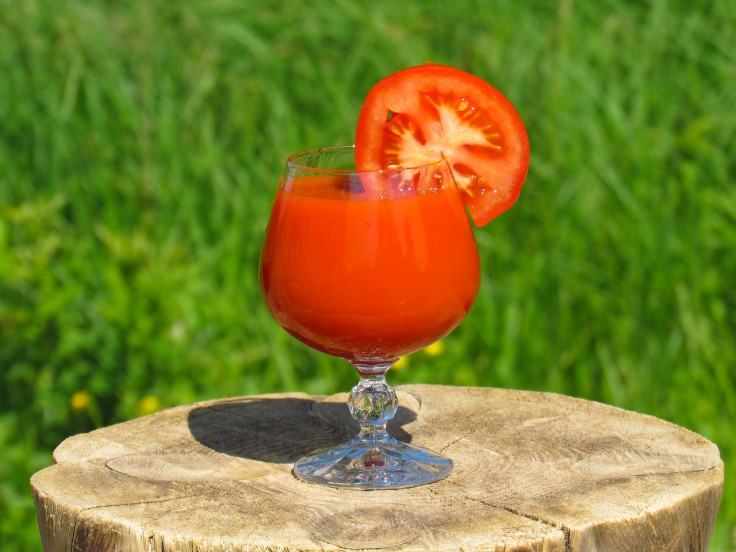Drink More Tomato Juice: Study Says It Has Antimicrobial Properties To Eliminate Typhoid-Causing Salmonella

Tomato juice, a natural drink made from a readily available vegetable, contains antimicrobial properties that could eliminate typhoid-causing Salmonella (Salmonella Typhi), findings of a recent study suggest.
Tomato is one of the most widely consumed affordable vegetables. It is also known for its antioxidant properties. However, its antimicrobial properties remain largely unexplored.
In the study, which was published in ASM journals, researchers examined the effectiveness of tomato juice and tomato-derived antimicrobial peptides (tdAMPs) against typhoidal Salmonella.
Typhoid is a life-threatening infectious disease that typically spreads through contaminated food or water. The affected patients develop symptoms such as prolonged high fever, fatigue, headache, nausea, abdominal pain and constipation or diarrhea.
Through laboratory experiments, the researchers first checked if tomato juice could kill Salmonella Typhi. Once the effectiveness was confirmed, the team examined the tomato's genome to identify the antimicrobial peptides responsible for disrupting the bacterial membrane which typically keeps them intact.
After the testing, researchers found that two out of four potential antimicrobial peptides selected by the team were effective against Salmonella Typhi. They then conducted more tests on Salmonella Typhi variants that appear in places where the disease is common.
Additionally, they did a computer study to learn the mechanism by which the antibacterial peptides kill Salmonella Typhi and other enteric pathogens. They also looked at how well tomato juice worked against other enteric pathogens that can hurt people's digestive and urinary tract health.
"Our research has revealed that tomato juice demonstrates significant antimicrobial properties against Salmonella Typhi, a pathogen that specifically affects humans and is responsible for causing typhoid fever," the researchers wrote.
"Furthermore, through computational and functional analyses, our study has identified two tomato-derived antimicrobial peptides tdAMP1 and tdAMP2 that demonstrate antimicrobial properties against a range of enteric pathogens, including typhoidal Salmonella (S. Typhi), non-typhoidal Salmonella (S. Typhimurium), and uropathogenic E. coli strains," they added.
The researchers believe their discovery brings a new outlook for addressing infectious diseases through common food items, especially with the global rise in antibiotic resistance cases.
"Every year, there are 21 million reported cases of typhoid fever, resulting in 200,000 fatalities globally. Despite the availability of typhoid vaccines, numerous developing countries continue to face substantial obstacles in accessing these vital resources. Additionally, the issue of antibiotic resistance poses a significant risk, particularly among malnourished children," the researchers noted.
The researchers hope their findings will inspire more people, particularly children and teenagers, to eat and drink more tomatoes and other fruits and vegetables rich in antimicrobial properties.
Other food items known for antimicrobial effects include tea, fruits like cranberry, black currant, grapes and vegetables such as leeks, onion and garlic.



























